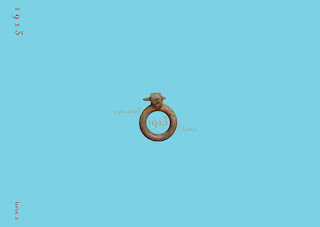The following is an excerpt from the column Video
Lies, a regular feature in the 1990s ‘zine Kraken Farmer, edited by the
redoubtable Lucy Kurtz, available at Tower Records and Flyrabbit.
Teenage Exorcist. Dir. Grant Austin Waldman. Perf.
Brinke Stevens, Eddie Deezen, and Robert Quarry. AIP Home Video, Inc, 1991. Videocassette.
Abstract.
Diane buys a mansion from a realtor deformed by
hypohidrotic ectodermal dysplasia. During the night she writhes in silk as the
mansion’s demon possesses her with the spirit of an evil baron. Diane wanders
the house in fetish gear and mounts a priest. Handel’s largo from Serse plays
as Diane bloodies the priest’s chest with claws given her by the demon. The
scene fades to black; “Intermission” appears on the screen; Serse plays to its
conclusion. Fade to star and author of Teenage Exorcist Brinke Stevens who
whispers, “Brink, break, ache, lake, shore, thresh, hold, hold would,
mark, mar, ocean, lore, fore, ground, down, own—” her voice and the image fade.
At the front door of the mansion stand a pizza
delivery boy and a horse. The horse nibbles pizza from the open pizza box the
delivery boy carries. The front door opens, but there’s no one on the other
side. ‘Course, there is a demon and the spirit of an evil baron and Diane
dominatrix. The delivery boy and the horse step into the dark mansion. They are
comically startled by the shirtless, bloody priest. The priest asks the
delivery boy and the horse to help exorcize
the baron from Diane. The priest is incompetent so he’s sent to sing to the
undead who’re drawn to the scene from a crack in the basement. Even as they eat
his guts he sings.
To exorcize Diane, the delivery boy refers to the
comic book he carries rolled in his back pocket, which turns out to be quite
helpful. “Pow!” he shouts. “Wham!” and, finally, “Pfft.” The baron slips away.
The horse eats the demon and the demon doesn’t even care. Our attention shifts to the open window. It’s
night. We stare out the window until dawn. That’s twenty minutes of the film’s
86 minute running time. The mansion is empty. Diane is herself again. She
strips ‘till she’s Brinke Stevens.



